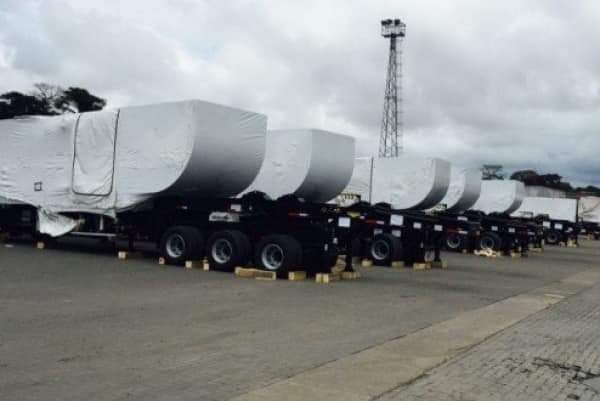
By Joshua Worlasi AMLANU & Ebenezer Chike Adjei NJOKU
The Ghana Stock Exchange (GSE) is set to unveil a new investment fund structure to address prohibitive costs that have prevented small and medium enterprises (SMEs) from accessing public capital markets, Managing Director Abena Amoah has told B&FT.
The proposed SME fund, developed in partnership with specialist development outfit Financial Sector Deepening (FSD) Africa, will pool investor capital and make it accessible to multiple small businesses, circumventing the expensive individual listing process that has rendered the Ghana Alternative Exchange (GAX) market ineffective since its launch.
Speaking in an exclusive sit-down, Ms. Amoah acknowledged that the current direct listing approach places an unsustainable financial burden on SMEs. For instance, a company seeking to raise GH¢10million through public offering could face professional service costs exceeding GH¢500,000 – representing at least 5 percent of the capital being raised.
“The process is currently very expensive for SMEs. They have to pay lawyers, external auditors, brokers to prepare prospectuses and regulatory fees. These advisors must work with companies for a minimum of one year and the GH¢500,000 in such an instance does not fully cover these costs,” she explained.
The cost structure has effectively priced out the target market, with many SMEs lacking dedicated staff to manage the complex listing requirements while simultaneously running their businesses. This has contributed to the GAX market’s underperformance compared to the main exchange, where established companies have attracted significant investor interest.
Launched in 2013, the GAX was designed to attract small and medium-sized enterprises by offering a more flexible regulatory framework and less onerous listing criteria than those imposed on the main exchange, but has so far struggled to do so.
Fund structure, timeline
Under the new structure, the SME fund will be listed on the exchange and raise capital from public investors. The fund will then invest in a portfolio of small businesses, with professional fund managers handling due diligence and ongoing monitoring.
Individual SMEs will access capital without facing direct listing requirements, while investors gain diversified exposure to the SME sector through a single listed security. The fund will report aggregated performance to the exchange and investors, similar to existing mutual fund structures.
“Instead of one company coming directly to raise GH¢10million, the fund can raise hundreds of millions and pool the costs,” Ms. Amoah explained.
“Companies accessing the fund won’t need to report directly to the GSE – the fund will handle that through aggregated reporting,” she added.
The exchange expects to implement the fund structure in the near future – though specific timelines depend on finalising arrangements with FSD Africa and obtaining necessary regulatory approvals.
Alternative solutions
The exchange is simultaneously developing a streamlined direct access route for SMEs, allowing companies to raise capital through simplified processes requiring basic information rather than full prospectuses.
This staged approach will enable companies to prove their market credibility over time, with the possibility of accessing additional capital through graduated requirements as they demonstrate performance and growth.
The exchange has identified approximately ten companies currently working with stakeholders to prepare for market entry through various structures.
Market context
The SME funding challenge reflects broader structural issues in Ghana’s capital markets. Debt financing dominates the space, with bank loans averaging 27-28 percent interest rates contributing to high non-performing loan (NPLs) ratios as companies become over-leveraged.
This mirrors global patterns, where debt capital markets typically exceed equity markets. In Europe, debt markets represent approximately 70 percent of total capital markets compared to 30 percent for equity. However, Ghana’s high cost of debt financing makes equity alternatives particularly important for business sustainability.
The exchange has identified several SME categories with strong retail investor appeal, including food and beverage companies, fashion brands and educational institutions. These consumer-facing businesses benefit from brand recognition that creates emotional connections with potential investors.
Broader strategic vision
The SME fund represents part of a broader strategy to create a comprehensive capital ecosystem serving businesses from start-up through maturity. The exchange recognises that different capital sources – venture capital, private equity and public markets – serve distinct phases of business development.
The GSE focuses on companies with established cash flows and proven business models, requiring basic governance structures and profitability track records. This positions the exchange to serve the mature end of the business lifecycle, complementing rather than competing with venture capital and private equity.
Ms. Amoah stressed that the fund structure will provide both capital access and governance benefits, helping SMEs develop transparency and reporting standards which enable further growth and potential graduation to the main market.
“We offer two things: capital and governance transparency. We believe these together allow businesses to scale effectively,” she noted.
This initiative comes as the main exchange experiences increased investor interest – driven by attractive valuations and strong financial performance from listed companies, particularly in the banking sector and gold-related investments.
The exchange’s last initial public offering occurred in 2018, with Kasapreko recently announcing plans for a listing this year. The SME fund structure could help address the limited supply of investment opportunities that has concentrated investor interest on existing securities.
GAX Performance
On the GAX, Samba Foods – a wholly Ghanaian-owned producer in the condiments and seasoning segment – has traded flat at GH¢0.55 since August 2029. Meridian Marshall Holdings, an education services provider focused on post-secondary, career-oriented training, remained unchanged at GH¢0.11 from its 2015 listing until a marginal dip of 0.01 pesewas in January 2024. It has since held steady at GH¢0.10.
Agro-processor Hords Ltd. GH has traded at GH¢0.10 since April 2026, while DigiCut Production & Advertising Limited has remained at GH¢0.09 since December 2018.
Intravenous Infusions Limited saw a modest uptick from GH¢0.04 to GH¢0.05 in December 2023 and has held that level since.
Pesewa One, the GAX’s most recent entrant, delisted on 29 September 2023 after shareholders approved the transfer of its assets to a newly formed Delaware-based entity – Pesewa ONE Franchise.
The post GAX overhaul underway, as GSE plans specialised fund for SMEs appeared first on The Business & Financial Times.
Read Full Story





















Facebook
Twitter
Pinterest
Instagram
Google+
YouTube
LinkedIn
RSS